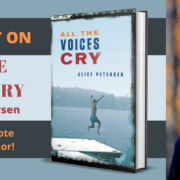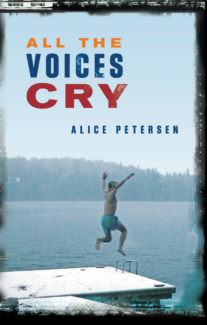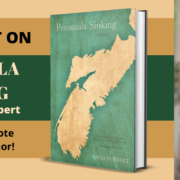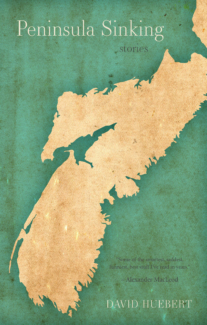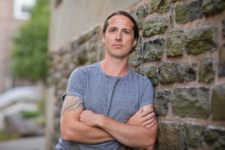Spotlight On: ALL THE VOICES CRY by ALICE PETERSEN
Summer is here and so is another title in our Biblioasis Spotlight Series! Biblioasis is proud to be the first home to several outstanding authors, so for the month of July, we wanted to celebrate the beauty of the debut with Alice Petersen‘s short story collection, All the Voices Cry (May 15, 2012). Don’t miss a brief note from the author below!
Winner of the QWF Concordia University First Book Prize (2012)
An academic’s wife, struggling to keep up with her husband’s quest to find a long-dead author’s Tahitian love-garden, realizes that her own idea of paradise no longer includes her husband. An architect dreams of slender redheads, Champlain’s astrolabe, and a brush with mortality—and finds at least the latter at Danseuses 7 Jours. An elderly man boards a trans-Pacific flight in an attempt to elude the prediction of a psychic, only to understand too late how the prophecy has shaped his actions.
In All the Voices Cry, modern life collides with all the old pushes and pulls: city and country, the global and the local, the ideal and the real. Petersen’s characters chase the mirage of escape, and are brought up hard by reality. This is a book rooted in landscape, tangled in the brambles of personal history, and it introduces in Alice Petersen a wondrous new voice that is yours to discover.
“Finely crafted and pared down to their bare essentials … These are stories that work on multiple levels, and continue to divulge their secrets after several rereadings.”—Quill & Quire
“Alice Petersen’s All the Voices Cry is masterful and potent—incredibly satisfying for a reader.”
—Kathleen Winter, author of Annabel
New Zealander-Canadian Alice Petersen was the 2009 winner of the David Adams Richards Award, offered by the Writers’ Federation of New Brunswick. Her stories have variously been shortlisted for the Journey Prize, the Writers’ Union of Canada competition, the CBC Literary awards, and the Metcalf Rooke Award. All the Voices Cry (Biblioasis, 2012) won the University of Concordia QWF First Book Prize. A second collection of stories, Worldly Goods, was published by Biblioasis in 2016. Petersen lives in Quebec with her husband and two daughters.
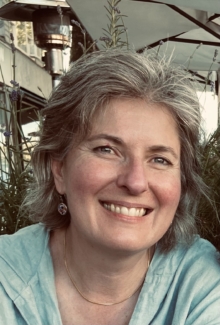 A NOTE FROM ALICE PETERSEN
A NOTE FROM ALICE PETERSEN
The stories in All the Voices Cry were written between 2002 and 2010. During that time, we built and spent most weekends in a small log cabin on the shores of a lake just outside the Parc de la Mauricie in Quebec. I would walk the trails in the Parc, learning about the woods of Eastern Canada. Edible mushrooms, lichen cups, purple lightening weed with matching flower spiders, mosses and bog plants, the changing states of water and ice—all of these things were there to be read and understood as intrinsic parts of Quebec. As a new immigrant I hoped that the process of memorizing this landscape and noting down the details would make that place more familiar, so it all got mulched up and made into stories.
But writing the stories in All the Voices Cry did not make that place mon coin. Although we had that cabin for over a decade, I was still just visiting, even at the end. Perhaps I will always feel this way about living in Canada. I do not know. Other stories in the book span the globe, ending up back on the East Coast of New Zealand’s South Island, where I grew up. Having dual nationality is a kind of emotional waterskiing—I feel lucky to have a foot in two countries, although there also is a precarious, teetering quality to the whole arrangement. The stories are lightly interlinked.
I have always liked the book cover that Gordon Robertson designed for Biblioasis. The image shows young man launching himself off the dock into a chilly looking lake. There is snow on the dock. Looking at the picture, you want to say don’t jump! It’s so cold! But that’s life. We each have to jump, don’t we? We have to, because the lake is there and because swimming is necessary.
Get your copy of All the Voices Cry here!
Check out Alice’s other collection, Worldy Goods, here!

